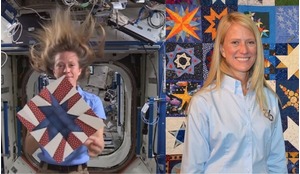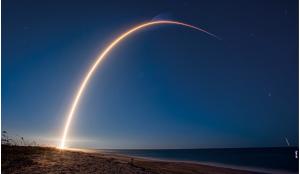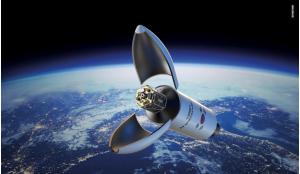A slice of space history was created at the end of June - not on the Moon or another planet in the solar system but in Vienna, Austria, where the world’s first space nation Asgardia took significant steps in its development and progress towards becoming a fully-fledged State. Asgardia’s first Head of Nation, Dr Igor Ashurbeyli, was inaugurated at a ceremony with guests from over 40 countries, including ambassadors of more than 10 countries, representatives of major public organisations affiliated with UN structures, newly elected Asgardian Members of Parliament, astronauts, space industry managers, scientists, international lawyers and the media.
Asgardia, named after the flying city of Asgard in ancient Norse mythology, was founded by Dr Igor Ashurbeyli on 12 October 2016. Its launch, announced at a press conference in Paris, received blanket global news coverage and there was an international influx of support. Over 100,000 Asgardians completed the first round of citizenship certification within the first 40 hours and over 500,000 registered an interest in the first 20 days.
 The first ever session of the Asgardian Parliament.
The first ever session of the Asgardian Parliament.
A year later, on 12 November 2017, the nation made its first foray into space with the launch of its inaugural satellite into Earth orbit. The satellite, dubbed Asgardia-1, is the precursor to a technical structure that will consist of multiple core satellites, clusters of network-centric small satellites and, eventually, a space platform to protect Earth.
Access to outer space should be a human right, beyond the control of any Earthly nation
Dr Igor Ashurbeyli was officially sworn in at a ceremony in Vienna’s 13th century Hofburg Palace on 25 June 2018, taking his oath of office before an audience of high-level diplomats, international scientists, engineers and legal experts, alongside approximately 110 newly elected Asgardian MPs and senior representatives of Asgardia. In a keynote speech he announced the intention to create habitable space stations and settlements on the Moon equipped with artificial gravity and protection from cosmic radiation to enable permanent human habitation in space.
He also announced time scales for the development of Asgardia’s infrastructure and economy, and the progression of its diplomatic relations with other nations as well as plans to fulfil one of its key objectives, the protection of Earth from rogue asteroids and other cosmic threats.
 Dr Igor Ashurbeyli pictured with Lembit Opik (left), Ana Mercedes Diaz and Yun Zhao.
Dr Igor Ashurbeyli pictured with Lembit Opik (left), Ana Mercedes Diaz and Yun Zhao.
Senior Asgardia representatives were introduced during the ceremony, including the Head of the Supreme Justice of the Court, Prof Yun Zhao, the Chair of Parliament, Lembit Öpik, and Prime Minister, Ana Mercedes Diaz.
 Asgardia’s legal team offering advice to MPs on the draft wording of amendments.
Asgardia’s legal team offering advice to MPs on the draft wording of amendments.
Dr Ashurbeyli said: “Access to outer space should be a human right, beyond the control of any Earthly nation. To safeguard humanity’s future, Asgardia is taking steps into the vast space frontier as the very first space nation.”
“Surely this day will remain in the annals of one of the greatest events in the history of humankind,” Dr Ashurbeyli told the assembled guests and those watching a live stream broadcast around the world.
“Just 20 months have passed since the moment when the announcement about the creation of Asgardia was made,” he stated in a heartfelt keynote speech. “And now we have not just an idea but also 200,000 Asgardians from more than 200 countries of the world, our own territory on a satellite, a Constitution, a flag, an anthem, coat of arms and our own calendar.
“A Parliament has been elected, as well as its Head of Supreme Justice and a Chairman of the Government. Just now we inaugurated the elected Head of the Nation. Therefore, we have formed all branches of power, and that allows me to state with confidence that the birth of the first space nation of the united humankind - Asgardia - has taken place.
 Cosmonaut Oleg Atremiev sends a message from the International Space Station.
Cosmonaut Oleg Atremiev sends a message from the International Space Station.
“No matter what happens in the future, the greatness of this very first moment will never be forgotten,” he added.
“In the next few months we will form the Cabinet, appoint heads of Parliamentary committees and members of the Court. We will form the Prosecutor General’s Office, the National Audit Office and the Supreme Space Council, we will finish staffing of the administration of the Head of Nation and internal affairs. Other important milestones will be the creation of a national bank and currency.”
Dr Ashurbeyli said he aimed to set “a truly extraterrestrial pace” by achieving all this before the end of 2018. He also explained that over the coming 25 years Asgardia will focus on the development of three core activities: technical engineering and infrastructure; state formation and economics; and philosophical, ideological and space politics.
Science and technology
No matter what happens in the future, the greatness of this very first moment will never be forgotten
“In the area of science and technology will be the creation of the Asgardian infrastructure that is independent from Earth - handheld devices for Asgardians that will combine the functions of passports, credit cards and our usual smart phones,” he said.
“A net of low flying global Internet satellites. High flying core satellites that will provide a full scope of digital services for its citizens and businesses, free access to space technologies for people on Earth regardless of the countries of their citizenship and status of economical development.
“Space arks that provide permanent accommodation for people in space in conditions of artificial gravity and protection from space radiation, thus enabling a possibility of human reproduction. A space fleet for the protection of humankind and planet Earth from threats emanating from outer space. Lunar satellites and Moon settlements both in orbit and on the Moon itself.”
 Dr Igor Ashurbeyli making his inaugural address at Hofburg Palace, Vienna, on 25 June 2018.
Dr Igor Ashurbeyli making his inaugural address at Hofburg Palace, Vienna, on 25 June 2018.
State formation
“Recognition of Asgardia as an independent space state via bilateral agreements by as many Earth states as possible. Admission of Asgardia into international organisations of Earth and ultimately in the United Nations (UN). Opening continental Embassies of Asgardia. A population comprisng of the two percent of the most creative people on Earth, equating to about 150 million, which will put Asgardia in the top 12 countries on Earth in terms of population and economics. At the same time the Asgardian economy will be aimed and focused exclusively on the benefit to its citizens, protection of national sovereignty and implementation of its scientific and technological space programme.”
To achieve UN recognition, Dr Ashurbeyli will begin establishing diplomatic relations with UN recognised nations with the goal of receiving the recognition of individual countries. Asgardia, which has plans to open embassies on all continents, will be governed by 12 ministries; Information and Communication, Justice, Science, Citizenship, Foreign Affairs, Finance, Trade and Commerce, Youth and Education, Safety and Security, Equity and Resources, Administrative Affairs, and Manufacturing.
 Asgardia’s first parliamentary session in Vienna.
Asgardia’s first parliamentary session in Vienna.

Philosophy and ideology
“Unfortunately, the entire history of civilization of Earth shows that humankind is moving in a spiral and cannot break the circle of endless bloody wars and separation of territories and resources,” said Dr Ashurbeyli. “All this is referred to by a peaceful sounding word ‘geopolitics’. But, in reality, the foundation of geopolitics is more like a ‘law of the jungle’ based on the development of weapons and exploitation of resources. Perhaps, space is to face the same future?
“The essence of Asgardia is peace in space and the prevention of Earth’s conflicts being transferred into space” - Dr Igor Ashurbeyli
“However, the progressive part of humankind, by uniting in Asgardia, can offer humankind a different direction via a new spiral of development and replacing geopolitics with space politics. Space is endless and its development provides a chance for an eternal life to homo sapiens as a species. Not by an arms race but by endless expansion of humankind into the Universe, where there is enough room for everyone.
 An historic photo of MPs and officials following the first meeting of the new Asgardian Parliament.
An historic photo of MPs and officials following the first meeting of the new Asgardian Parliament.
“There’s a logical imperative behind the existence of this nation. Without Asgardia, space becomes another ‘land grab’ by terrestrial powers” - Lembit Öpik
“In conclusion, I want to highlight that Asgardia is a truly avant-garde, technocratic and futuristic state. But we call it a space ‘kingdom’. Because first of all Asgardia is a reflection of a beautiful ancient dream of humankind of a divine peaceful land in the heavens, where people wanted to get to with all their hearts. Where there is no pain and hatred, just love and joy. Isn’t this romance of a free human spirit more important than the pragmatism of our entire world on Earth? Isn’t it beautiful? We are not the best. We are the future.”
About Dr Igor Ashurbeyli
Dr Igor Ashurbeyli is a scientist, entrepreneur, philanthropist and Doctor of Science in Engineering. In 2010, he was awarded Russia’s State Science & Technology prize and in 2013 he founded the Aerospace International Research Center (AIRC) in Vienna, Austria; and ‘ROOM - The Space Journal’ – a prominent international aerospace publication. In 2016, he was awarded the Gold UNESCO Medal ‘for contribution to the development of nanoscience and nanotechnologies’. He is the President of the International UNESCO Commission on Space Science and an author of more than 100 scientific works, including five monographs and encyclopaedias; he is the recipient of the Order of Honour and four state medals, as well as many public and official awards.














